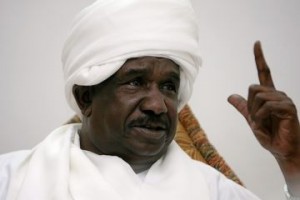 For decades, the Arab League had few admirers among Mideast commentators, and probably fewer still among the average citizens of the 22 mostly autocratic states that comprise its governing body.
For decades, the Arab League had few admirers among Mideast commentators, and probably fewer still among the average citizens of the 22 mostly autocratic states that comprise its governing body.
But a week after dozens of league observers entered Syria to monitor a December peace agreement between the Syrian government of Bashar al-Assad and the league, its popularity may finally be nearing rock bottom.
The comments of mission head Lt. Gen. Mohamed al-Dabi, a former Sudanese intelligence chief, are a major reason for this, according to several Arab media figures. After visiting the restive city of Homs last week, Dabi declared to news media, “Some places looked a bit of a mess, but there was nothing frightening.” Homs has been at the center of anti-government protests that began in March. Amid a brutal crackdown by the government and rising violence by some opposition-aligned groups, approximately 5,000 people have died since.
More than 150 people are believed to have been killed in just the week since the observers arrived. Their mission is to verify that, in accordance with the December agreement, both sides end the violence and the government withdraws security forces from the cities and releases detainees estimated in the tens of thousands.
Noting that Dabi is tightly affiliated with the regime of Sudanese President Omar Bashir, who is wanted for war crimes by the International Criminal Court, columnist Mshari al-Zaydi of the London-based Asharq al-Awsat demanded: “General al-Dabi, go back to Sudan and observe the murders and the forcible displacements there, instead of being applauded for assisting the murders of people in Homs, Hama, Daraa and Jabal al-Zawiya,” a reference to other flashpoint cities in Syria.
Writing in the London-based Al-Hayat, columnist Abd-al-Wahab Badrakhan argued that the observer effort had been hamstrung from the outset. “The observers arrived too late,” he said, and “were too few in number, and with dubious credibility.” They have found only “a nervous authority to receive them, exhausted and ready to commit the massacre that it promised in Homs.”
The bigger problem was not the mechanics of the mission, Badrakhan stressed. Rather, there was and still is no credible roadmap for a long-term political settlement after the Arab League observers report in coming days on whether the Syrian government and its opponents have complied with the limited terms of the December agreement. “What else after this week? Another week?” he asked despairingly, suggesting that a step backward to even greater violence was in the offing.
For some commentators, Dabi’s statements — including a comment over the weekend that contradicted his own observer who noted rooftop snipers in one city — were evidence of something sinister afoot: collaboration by the league with Assad’s regime. Writing in the pro-monarchy, Qatar-based paper Al-Raya, columnist Taha Khalifa charged:
The Syrian regime is a master at the game of wasting time and using useless negotiations to stifle any issue and exhaust the other side without offering any concessions. This is what it has been doing with the Arab League ever since it started intervening to resolve the crisis.
Knowing this, the Arab League still agreed to an observer mission, headed by an ostensible Assad ally, Khalifa wrote. Had the Syrians refused, the league threatened to transfer the issue to the United Nations Security Council. Khalifa continued:
I do not think the League was serious about its threat, given that there are different sides within it ready to undermine any serious step. They are collaborating with Damascus and want to prevent the Arab Spring from continuing on its course.
Khalifa declined to specify which “sides” might be prepared to undercut punitive action against the Syrian government and subvert the Arab Spring. Qatar, the home base of his home paper, has supported efforts to violently suppress pro-democracy demonstrations in nearby Bahrain. He concluded, “The Arabs and the West will clearly not offer much to the Syrian people, who have no choice but to continue their revolution on their own.”
Among the few commentators who defended the Arab League mission were those affiliated with state-controlled media in Syria. In these accounts, the smell of conspiracy was pervasive, with the league’s mission cast as a hapless victim to outside interference. Ali Qassem, the editor-in-chief of the daily Ath-Thawra, wrote:
The observers’ mission is preoccupied with denials and counter-denials seen on a daily basis and sometimes more than once a day. There is no doubt that sides, states and powers do not want the mission to carry out its task. What is happening is an intentional jamming operation along two parallel courses. The first is aimed at preoccupying the delegation as long as possible. The second is aimed at instigating against its work in advance.
And who is responsible for this plotting? For months, the major national dailies in Syria have targeted the Arab League and most Arab states individually for increasingly harsh attacks, but suddenly they dropped off the adversaries list, leaving the U.S., the European countries and Israel to shoulder the blame.
It’s a familiar place for all three in the Syrian media. It’s probably just a matter of time before the Arab League is also seen again as an enemy of a state that seems determined to blame anyone but itself for its problems.
Bloomberg

Leave a Reply
You must be logged in to post a comment.